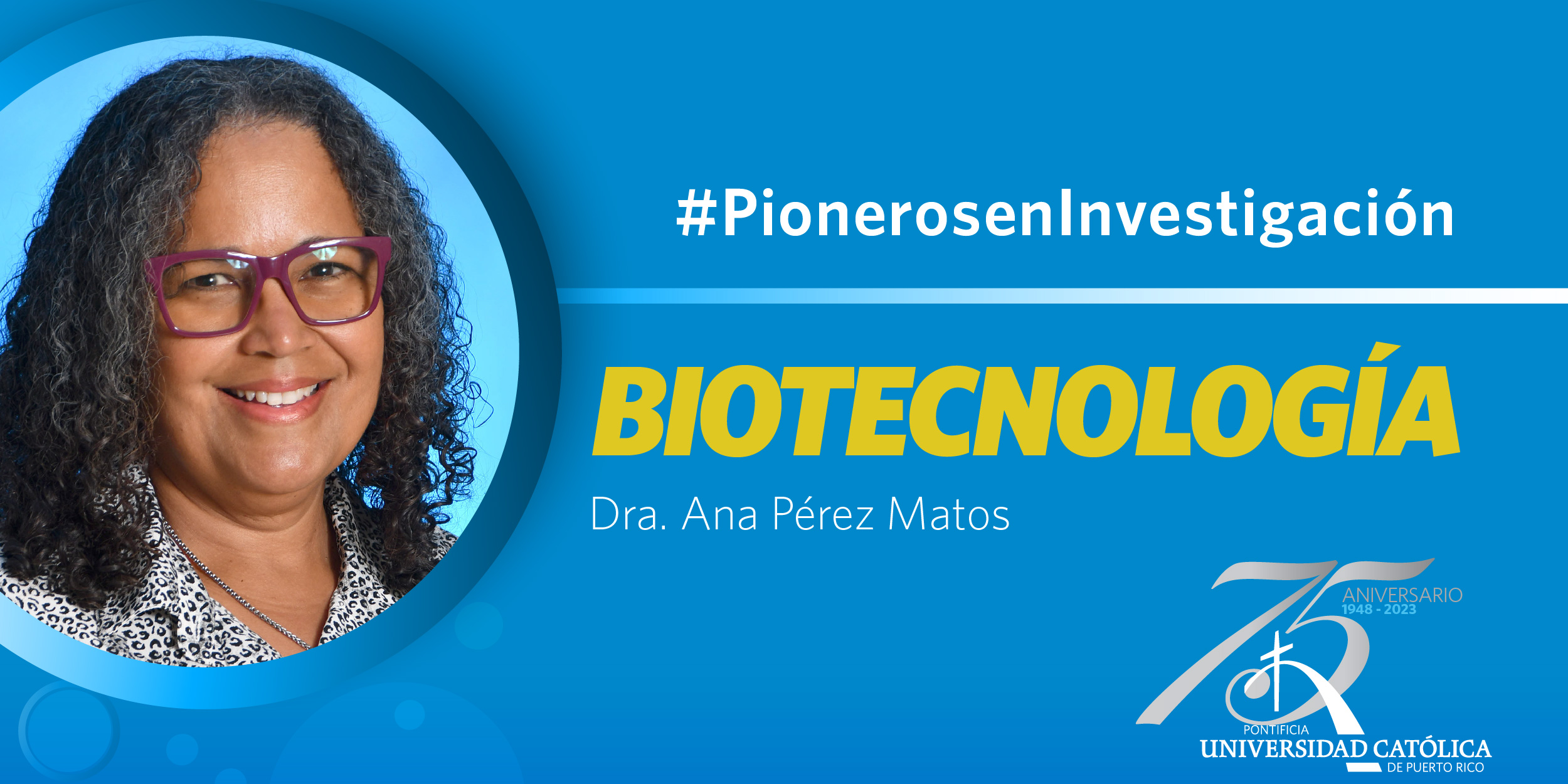La Dra. Ana Pérez Matos es Pionera en investigación
La profesora investigadora del Centro de Enseñanza e Investigación en Biotecnología y Agrobiotecnología comparte su publicación
La Pontificia Universidad Católica de Puerto Rico se distingue por las investigaciones realizadas por la facultad en diversas áreas. En este espacio se destacará parte de estas investigaciones que han sido publicadas en revistas arbitradas.
Dra. Ana Pérez Matos (Biotecnología – CEIBA)
Título: Characterization of the Bacterial Communities Inhabiting Tropical Propolis of Puerto Rico
Investigadoras:
- Ana E. Pérez Matos 1, Giovanni Bacci 2, Luigimaria Borruso 3, Maria Landolfi 2,3, Dominique Petrocchi 2,4, Sonia Renzi 2 and Brunella Perito 2
1 Biotechnology and Agrobiotechnology Research and Learning Center, Department of Natural Sciences, Pontifical Catholic University of Puerto Rico, Ponce 00717, Puerto Rico
2 Department of Biology, University of Florence, Via Madonna del Piano 6, Sesto Fiorentino, 50019 Florence, Italy
3 Faculty of Science and Technology, Free University of Bozen/Bolzano, 39100 Bolzano, Italy
4 Scientific Laboratory of Opificio delle Pietre Dure, Viale F. Strozzi 1, 50129 Firenze
Resumen:
Propolis is a resinous material produced by honeybees from different plant sources and used in the hive as a building material and to protect the colony from parasites and pathogens. Despite its antimicrobial properties, recent studies showed that propolis hosts diverse microbial strains, some with great antimicrobial potential. In this study, the first description of the bacterial community of propolis produced by the gentle Africanized honeybee was reported. Propolis was sampled from hives of two different geographic areas of Puerto Rico (PR, USA), and the associated microbiota investigated by both cultivation and metataxonomic approaches. Metabarcoding analysis showed appreciable bacterial diversity in both areas and statistically significant dissimilarity in the taxa composition of the two areas, probably due to the different climatic conditions. Both metabarcoding and cultivation data revealed the presence of taxa already detected in other hive components and compatible with the bee’s foraging environment. Isolated bacteria and propolis extracts showed antimicrobial activity against Gram-positive and Gram-negative bacterial tester strains. These results support the hypothesis that the propolis microbiota could contribute to propolis’ antimicrobial properties.
Revista: Microorganisms
Año de publicación 2023
Número 11(5), pág. 1130
Página web: https://www.mdpi.com/journal/microorganisms
DOI: https://doi.org/10.3390/microorganisms11051130
País de la revista: Suiza
Versión pdf: https://www.mdpi.com/2076-2607/11/5/1130/pdf



